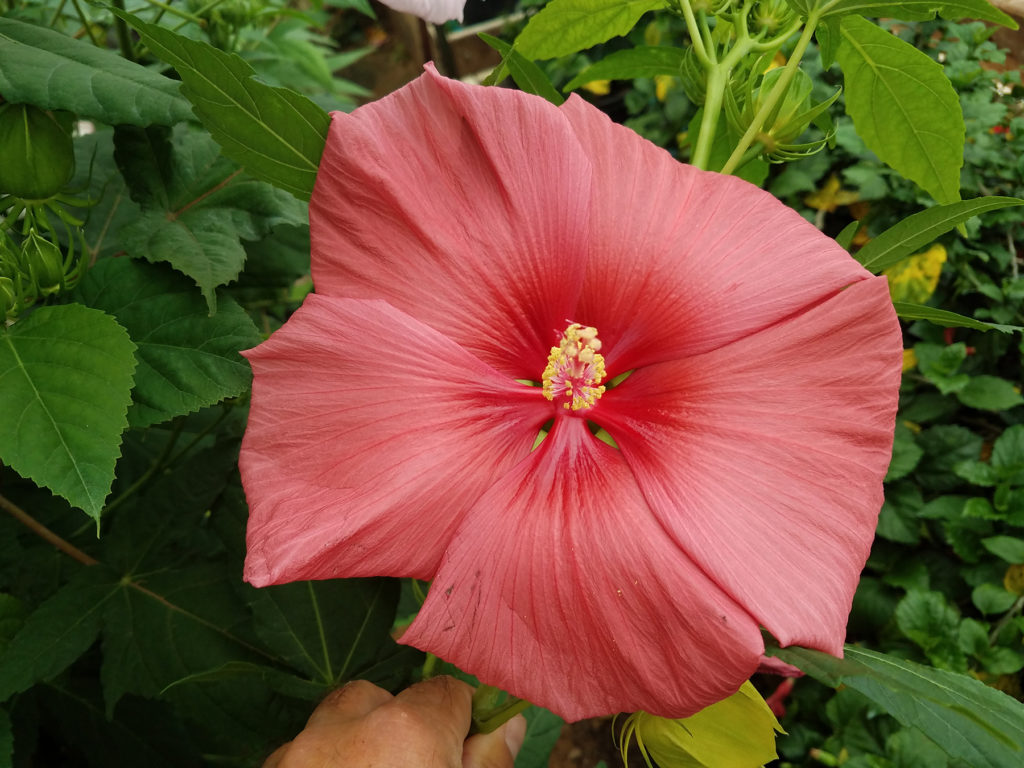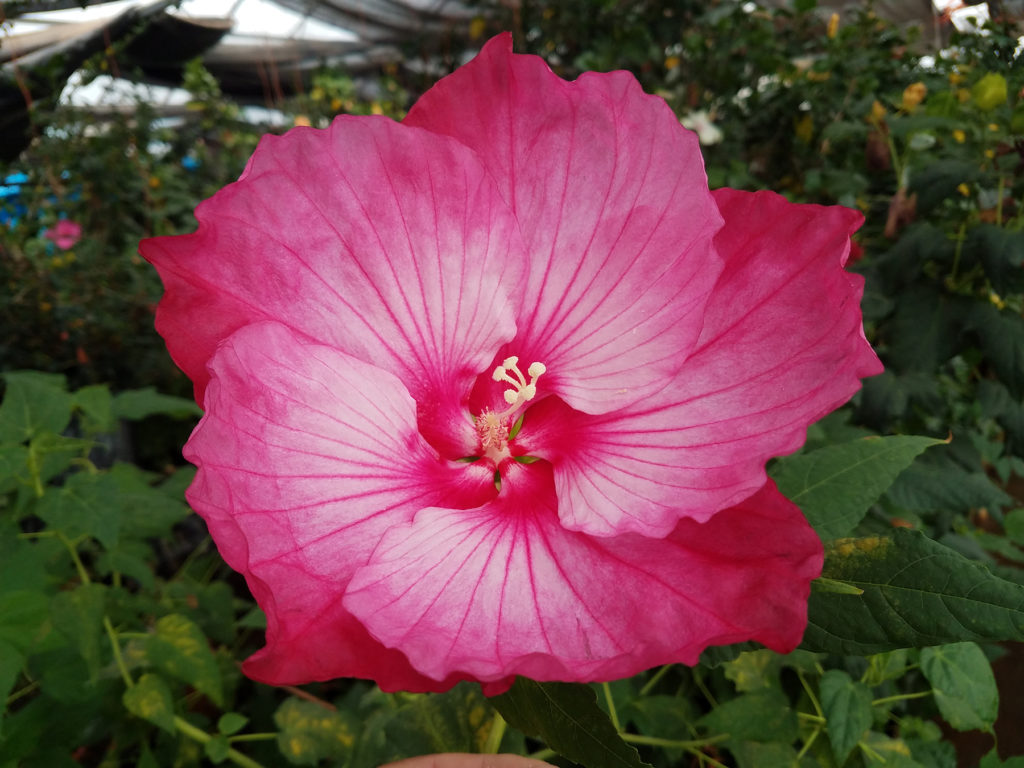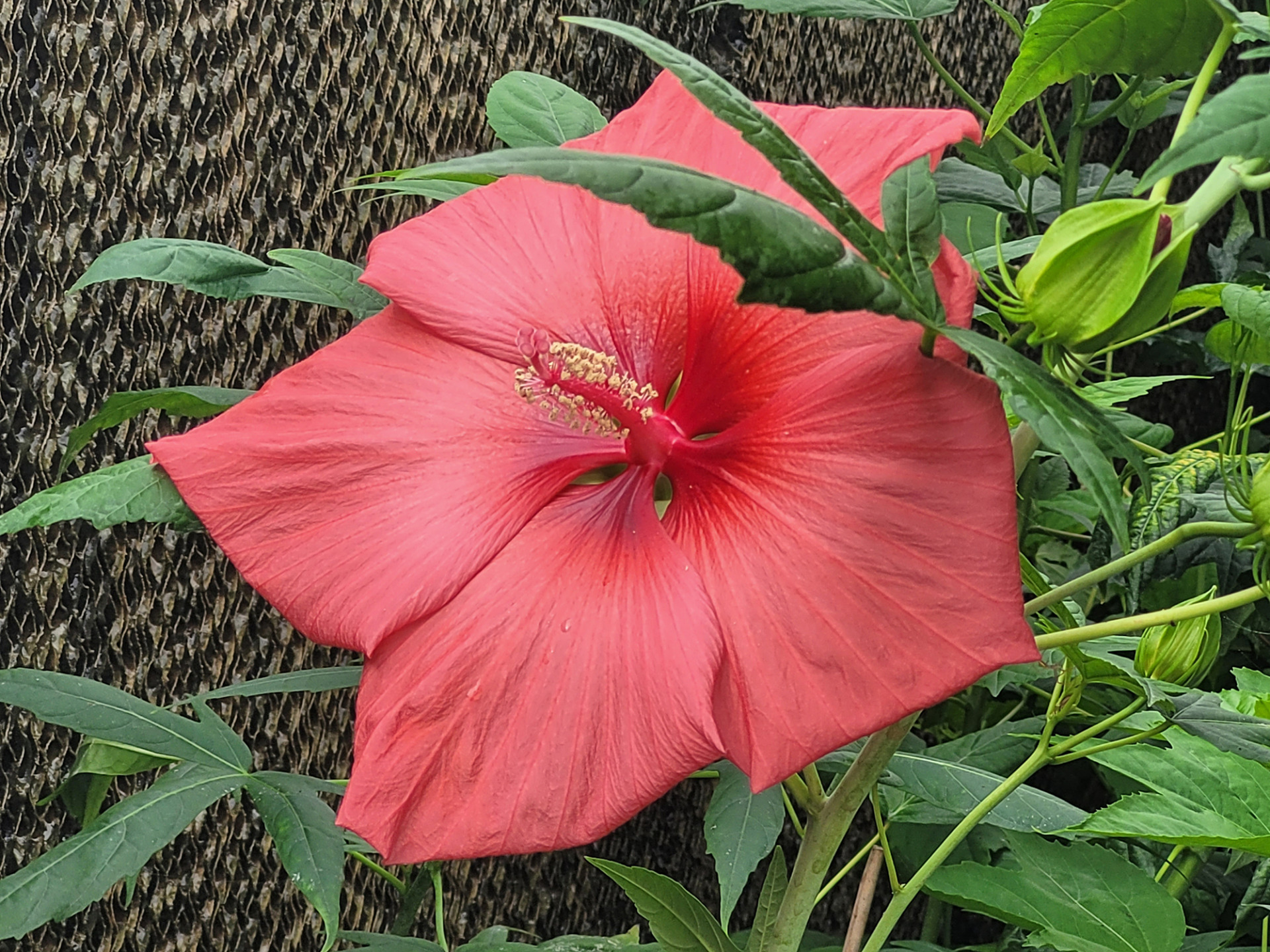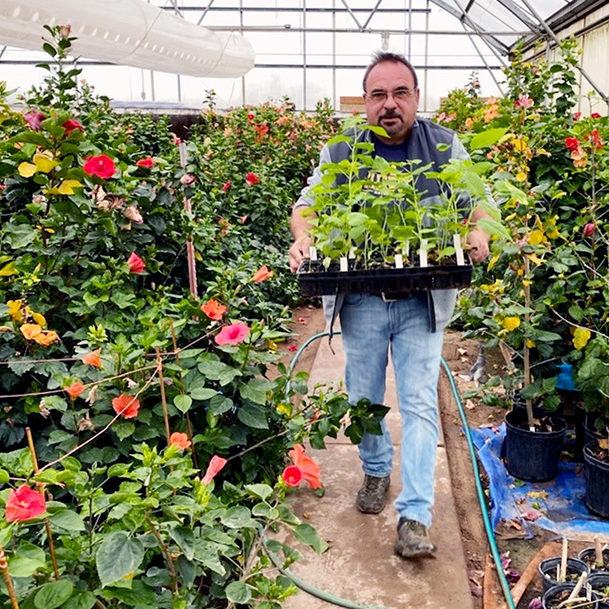Texas grocer to offer limited run of AgriLife Research-bred hibiscus
United Family stores will carry winter-hardy plants in July from Dallas to Albuquerque
Rarely are Texas Plains gardeners able to purchase flowers bred specifically for their region. But in July, the United Family chain of stores will offer winter-hardy hibiscus plants bred by the Texas A&M AgriLife Research ornamental breeding program in Vernon.

The United Family has stores from Dallas-Fort Worth to Albuquerque that will participate in this distribution of winter-hardy hibiscus. The distribution will include some Texas A&M AgriLife-bred plants, with particular emphasis on the Vernon and Wichita Falls stores, said Bradley Gaines, business director for floral with the United Family, Lubbock.
The floral departments in about 90 stores will offer the plants, some of which will be from the award-winning Summer Spice Collection by J. Berry Nursery. This specific collection contains winter-hardy hibiscus bred by Dariusz Malinowski, Ph.D., AgriLife Research plant physiologist in the Texas A&M AgriLife Research and Extension Center at Vernon.
“Dr. Malinowski’s winter-hardy hibiscus program is the No. 1 program in the world,” said Rick Vierling, Ph.D., who serves as the center director at Vernon as well as Texas A&M AgriLife Foundation Seed manager and senior adviser for business strategy for Texas A&M AgriLife. “Just three short years ago, he started a tropical hibiscus breeding program, and it is already one of the top programs in the world too.
“It is satisfying to see people and businesses in the region embrace the program. Commercialization is important to every breeding program; the money brought in by the hibiscus program also supports Dr. Malinowski’s forage breeding program.”
Malinowski’s primary research as a plant physiologist within the Texas A&M College of Agriculture and Life Sciences Department of Soil and Crop Sciences focuses on developing summer-dormant, cool-season forage grasses for semi-arid environments of the Southern Great Plains.
Get them while they last
Gaines said more than 1,000 plants are headed to the United store at Vernon, as the city builds on its reputation to become the Hibiscus Capital of the world. The Wichita Falls store will also have a larger number than most other stores, which will typically carry about 50 plants each.

The plants will be available initially July 2-4, and some stores will have a second offering around mid-July, he said. They will all be in 2-gallon pots, and every plant should be flowering.
“Hardy hibiscus is a late crop,” Gaines said. “We are usually out of the outdoor bedding plants by now typically, but this is different. It’s in the cotton family, so it likes the sun and heat.”
He said it is rare for United to be able to offer locally bred flowers because most breeders are in different parts of the country – Southern California or even overseas.
“This is our second year to have the hardy hibiscus bred in Vernon,” Gaines said. “We met with Dariusz and were impressed with his relationship with the J. Berry Nursery. We’re excited to bring Texas A&M-bred hibiscus to almost all of our stores between Albuquerque and Dallas-Fort Worth. Not every store ordered them, but we will have them in 90 stores.”
Malinowski said it is exciting to see United expanding their offerings to stores throughout their service area, adding he will be at the Vernon store on July 3 at 9-10:30 a.m. and again around July 15, when the second shipment of Summer Spice Collection will be delivered. He will meet with buyers and provide more information about raising the winter-hardy hibiscus.
“Last year, our local United learned about the locally bred hibiscus and agreed to carry the Summer Spice Collection,” he said. “It was a huge success and they sold out of most plants in one day.
“The Summer Spice Collection was introduced on the U.S. market by J. Berry Nursery only in 2018, and the plants are still difficult to find in nurseries and stores nationwide. Thus, we appreciate United helping Vernon citizens be among the first gardeners enjoying the beautiful flowers and contributing to make our town the Hibiscus Capitol of Texas.
Winter-hardy and tropical hibiscus breeding program
Malinowski’s hibiscus breeding program at the Vernon Center is world-renowned and produces plants with a vast array of unique flower colors and shapes. One of the program’s greatest achievements is the development of the world’s first blue winter-hardy hibiscus.

Springing from a hobby, he initiated the hibiscus breeding project in 2008 in collaboration with co-workers Steve Brown, former director of Texas A&M AgriLife Foundation Seed, and Bill Pinchak, Ph.D., AgriLife Research animal nutritionist. The winter-hardy hibiscus breeding program became an official part of the AgriLife Research-Vernon strategic plan in 2010.
The program typically evaluates 1,000 to 2,000 winter-hardy hibiscus hybrids per year, he said. From those varieties, 20-30 hybrids may be chosen for disclosure to the Texas A&M Technology Commercialization office, which begins the commercialization process for potential new variety releases, based on their characteristics.
“We just accomplished a three-year sponsored research project in collaboration with J. Berry Nursery to develop plants with dark foliage and an array of flower colors,” Malinowski said. “These hybrids are in the final stage of evaluation and soon will be added to the Summer Spice Collection. We are currently working on creating winter-hardy hibiscus hybrids with the improved blue flower color and – totally new for winter-hardy hibiscus – orange flower color on plants with dark foliage.
In 2018, several of the Vernon-bred winter-hardy hibiscuses were commercially licensed through Texas A&M AgriLife Foundation Seed and Texas A&M AgriLife’s Intellectual Property and Commercialization office, under the Summer Spice Collection name by J. Berry Nursery.
The collection now includes these flowers and colors: Amaretto, coral-salmon; Bleu Brulee and Cordon Bleu, blue; Crème de la Cocoa, very dark red; Crème de la Crème, white with serrated petal edges; Crepe Suzette, bright pink; Plum Flambe, light plum; Pink Champagne, reddish tones; and the brand new Rosé Soufflé, dark pink color.
“Over the years, we have created an impressive genetic variability in our winter-hardy hibiscus hybrids,” Malinowski said. “This allows for new traits to appear that have previously not been known in winter-hardy hibiscus species. For example, more and more of our hybrids now very closely resemble flowers of their distant relative, the tropical hibiscus. We hope that the Texas A&M AgriLife hibiscus breeding program will bring even more exceptional cultivars in the coming years.”





